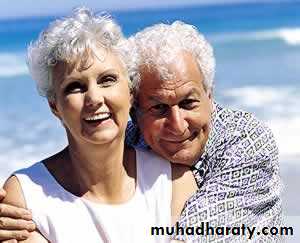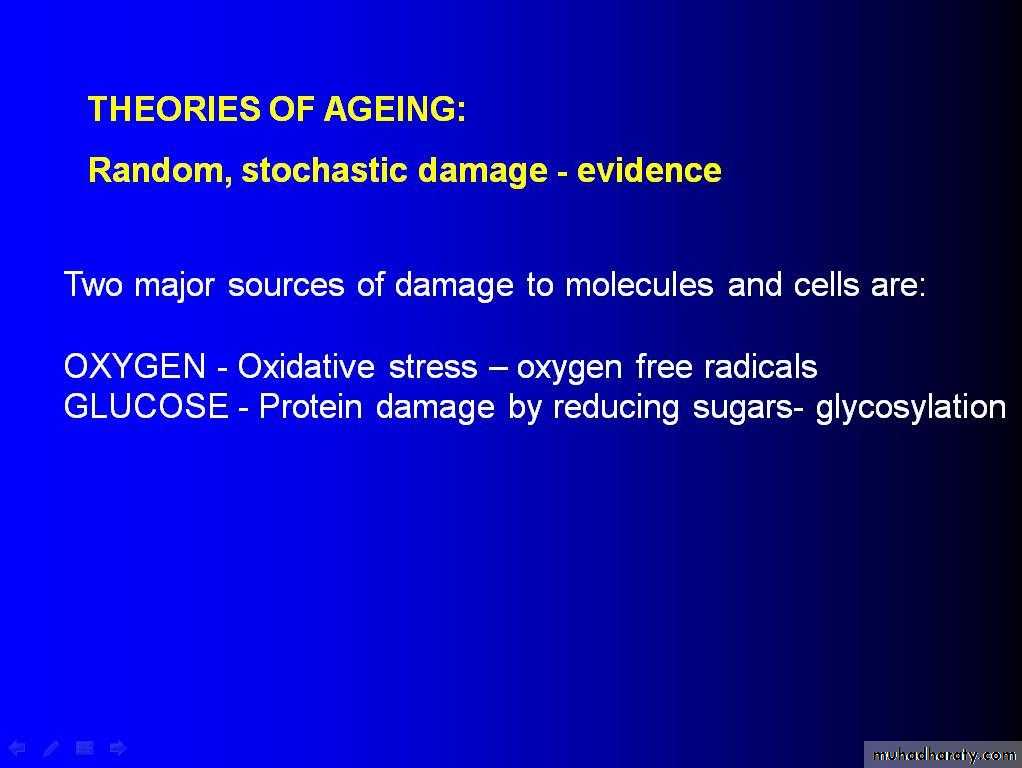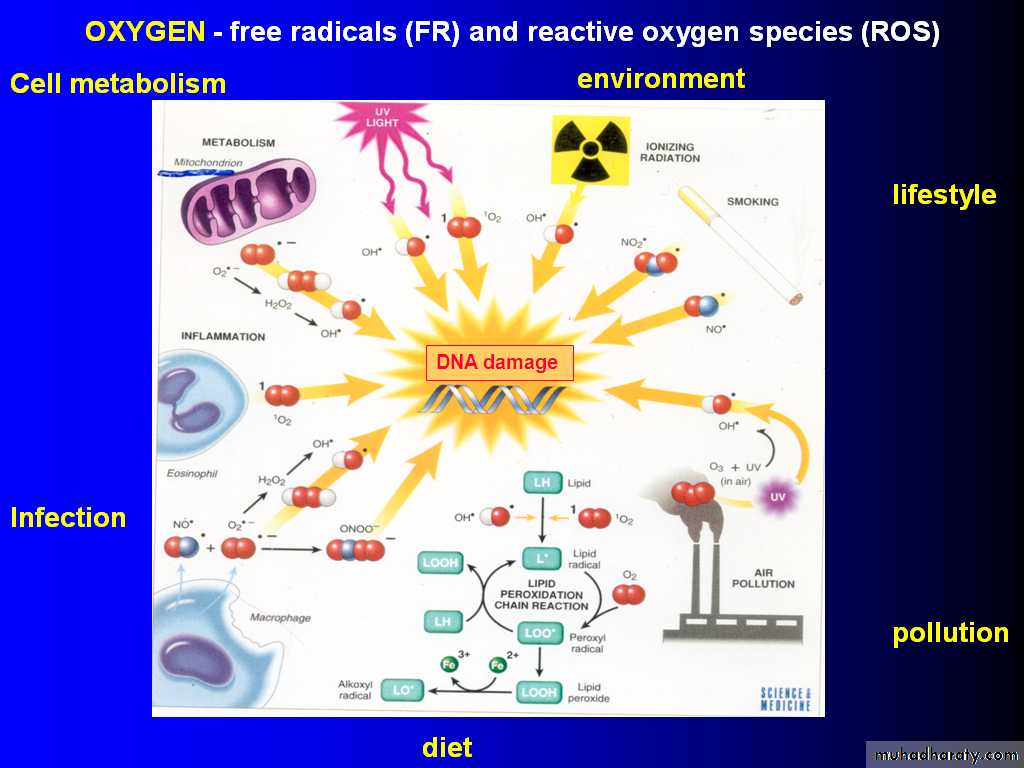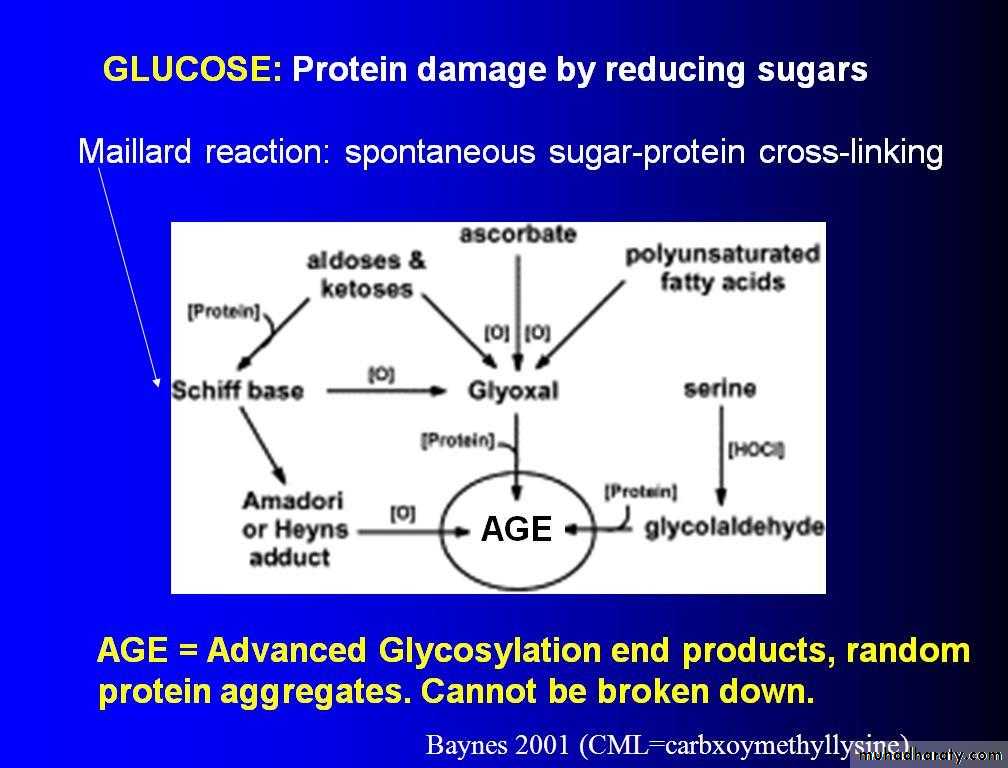GERIATRIC MEDICINE
LECTURE-1AgingDefinition
Aging is the progressive, universal decline first in functional reserve and then in function that occurs in organisms overAging is heterogeneous.
It varies widely in different individuals and in different organs within a particular individual.
Aging is not a disease; however, the risk of developing disease is increased, often dramatically, as a function of age.
The biochemical composition of tissues changes with age; physiologic capacity decreases, the ability to maintain homeostasis in adapting to stressors declines, and vulnerability to disease processes increases with age .
Demography of Aging
Improvements in environmental (e.g., clean water and improved sanitation) and behavioral (nutrition, reduced risk exposures) factors and the treatment and prevention of infectious diseases are largely responsible for the 30-year increase in life expectancy since 1900.In the United States, by 2030, 1 person in 5 will be >65 years.
Global Aging
At present 59% of older adults live in the developing countries of Africa, Asia, Latin America, the Caribbean, and Oceania.
The developed world has the largest absolute number of older adults and is experiencing the largest percentage increase.
Elderly people are incompetent and incapable of making decisions or handling their own affairs.
Most elderly live in nursing homes
All elderly people live in povertyOlder people are lonely and unhappy
Elderly do not want to work
“Old Age” begins a 65Retirement ends your active life
Physical Changes of AgingMost physical changes that occur with aging are gradual and take place over a long period of time. In addition, the rate and degree of change varies among individuals.
Factors such as disease can increase the speed and degree of the changes. Lifestyle, nutrition, economic status, and social environment can also have effects.
If an individual can recognize the changes as a/an normal part of aging, the individual can usually learn to adapt to & cope with change
Integumentary SystemChanges
Production of new skin cells decreasesOil and Sweat glands become less active
Circulation decreases
Fatty tissue layer of skin diminishes
Lines and wrinkles appearNails become thick, tough, and brittle
Increased sensitivity to temperature
Circulatory System changes
With circulatory changes:Avoid strenuous exercise or over exertion
Periods of rest
Moderate exercise, according to individual’s tolerance
High Blood Pressure =
Diet low in saltDecrease fat intake
Exercise as recommended by physician
Respiratory Changes
Respiratory muscles become weakerRib cage more rigid
Alveoli thinner & less elastic which decreases exchange of gases - emphysema
Changes may cause the elderly to experience:
Dyspnea
Breathing increases in rate
Difficulty coughing up secretions
Increases susceptibility to infections such as a cold or pneumonia
Nervous System Changes
Blood flow to brain decreases & there is a progressive loss of brain cells - - Interferes withThinking - Reacting
Interpreting - Remembering
Senses of taste, smell, vision, & hearing are diminished
Nerve endings less sensitiveDecreased ability to respond to pain and other stimuli
Decrease in taste& smell frequently affects appetite
Changes in vision
Problems reading small printSeeing objects at a distance
Decrease in peripheral vision
Decrease in night vision
Increased sensitivity to glare
Cataracts
Glaucoma
Changes in hearing
Hearing loss usually gradual
Person may speak louder than usual
Ask for words to be repeated
Not hear high frequency sounds
May not hear well in crowded places
Decreased sensation to pain & other stimuli = more susceptible
BurnsFrostbite
Cuts
Fractures
Muscle strain and other injuries
Digestive Changes
Fewer digestive juices and enzymes producedMuscle action becomes slower & peristalsis decreases
Teeth are lost
Liver function decreases
Dysphagia is frequent complaint
Less salivaSlower gag reflex
Loss of teeth
Poor fitting dentures
Slower digestion of food
indigestion
Urinary Changes
Kidneys decrease in size & become less efficient
Bladder becomes less efficient
May not hold as much
May not empty completely
incontinence
Endocrine Changes
Increased production of some hormones and decreased of othersImmune system less effective
BMR decreases
Intolerance to glucose
Reproductive System Changes
Decrease of estrogen / progesterone in femaleThinning of vaginal wall
Decrease vaginal secretions
Inflammation of vagina common
Psychosocial Changes
Some individual cope with psychosocial changes, and others experience extreme frustration and mental distressFears of a sick person:
Death
Chronic illness
Loss of function
Pain
Confusion and Disorientation
Talking incoherentlyNot knowing their name
Not recognizing others
Wandering aimlessly
Lacking awareness of time or place
Diseases:
CVAArteriosclerosis
Atherosclerosis
Cause TIA’s ministrokes which result in temporary periods of diminished blood flow to the brain.
Dementia
Loss of mental ability characterized by a decrease in intellectual ability, loss of memory, impaired judgement, personality change, and disorientation
Acute dementia
When the symptoms are caused by temporary reason:High fever, dehydration, hypoxia
Chronic dementia
When symptoms are caused by permanent, irreversible damage to brain cells
TYPES OF DEMENTIA
PRIMARY NEURODEGENERATIVECORTICAL
Alzheimer’s disease
Fronto-temporal dementias (Pick’s disease)
SUBCORTICAL
Progressive supra nuclear palsy
Huntington’s
Lewy Body Disease
VASCULAR
Multi-infarctBiswangers disease
INFECTIVE
Creutzfeld-jacob
AIDS
Neurosyphilis
TRAUMA
Sub dural
Dementia pugulistica
radiotherapy
NORMAL PRESSURE HYDROCEPHALUS
ASSOCIATED WITH OTHER DISEASES
Parkinson’sWilson’s
Multiple sclerosis
Tumors
Vasculitis
Alzheimer’s Disease
Form of dementia that causes progressive changes in brain cellsThe patient may develop seizures
Loses weight despite eating a balanced dietBecomes totally dependent
Lapses into a coma
Dies
GERIATRIC MEDICINE
LECTURE-2
FALLS
CONSEQUENCES10 –15% fracture
Decrease in functional status
2% injurious falls result in death
Falls usually occur when a threat to the normal homeostatic mechanisms that maintain postural stability is superimposed on age-related declines in balance, ambulation and cardiovascular function.
Threat
Acute illnessEnvironmental stress
Unsafe walking surface
RISK FACTORS
AgeFemale
Past fall
Cognitive impairment
Lower limb weakness
Balance disturbance
AGE RELATED FUNCTIONAL DECLINE
Visual
Proprioceptive
Vestibular
MECHANISM
SYNCOPE /HYPOTENSIONSEIZURE
DIZZINESS / BALANCE
GAIT DISTURBANCE
PAIN / WEAKNESS
MECHANICAL FALL
Delirium
SepsisHypoxia
Biochemical disturbances
Calcium, sodium, glucose,urea,hepatic
DEFINITION
An acute organic mental syndrome characterized by:Global cognitive impairment
Reduced consciousness
Disturbed attention
Psychomotor activity
Sleep-wake cycle disturbance
Comparison delirium and dementia
Sudden onset
Usually reversible
Short duration
Fluctuations
Altered consciousness
Associated illness
Inattention
Always worse at night
Impaired variable recall
Insidious onset
Slowly progressive
Long duration
Relatively stable
Normal consciousness
Not associated
Attention not sustained
Can be worse at night
Memory loss
Treat Memory
Cholinergics?estrogens
Vitamin E
Selegeline
Treat Symptoms
Treat family
Non pharmacological
Antipsychotics
Benzodiazepines
ANTIDEPRESSANTS
WEIGHT LOSS IN ELDERLY PEOPLE
DiseaseDentition
Depression
Dysgeusia
Drugs
Dysfunction
Dementia
Diarrhea/ Malaborption
Dysphagia
• The Nine “Ds” of Inadequate Food Intake and Weight Loss
• In The Elderly:In about 25% of cases, there is no clear etiology for weight loss.
When etiology is established the most frequent reasons are:
Depression
GI (peptic ulcer or motility disorders)
Cancer
Which of the following medications may cause loss of appetite in the elderly?
NSAIDSPsuedoephedrine
Theophylline
Megestrol Acetate
Antineoplastics
Antihistamines
• Appetite loss:
• Psuedoephedrine, Theophylline, Antineoplastics.• Increased appetite:
• NSAIDS, “Megace” and Antihistamines.





